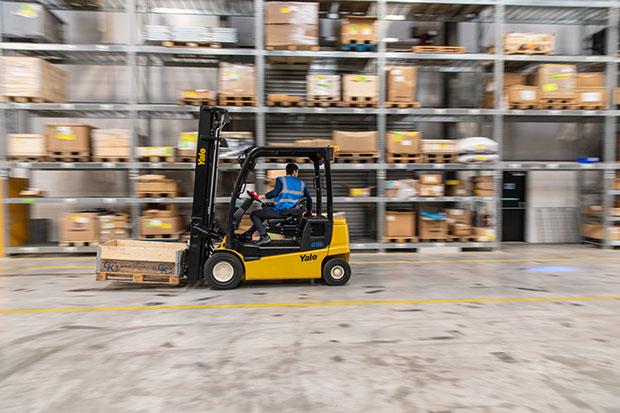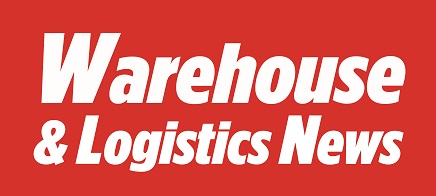No matter where we turn, costs are going up. According to a report by Accenture, the supply chain is particularly struggling; in the aftermath of the pandemic, the war in Ukraine is only exacerbating a shortage of raw materials, a breakdown in logistics, energy and inflation, and a shortage of talent. Depending on the length and severity of the war, the cost of the disruption to the supply chain could cost €242 billion – or in a protracted war scenario, €920 billion.
 As the impact of this continues to be felt, Accenture predicts consumers will start to cut back on some non-essential items, while businesses will focus on improving operating efficiency.
As the impact of this continues to be felt, Accenture predicts consumers will start to cut back on some non-essential items, while businesses will focus on improving operating efficiency.
However, the report sets out the argument for reinventing the supply chain. It sets out the case for optimising the supply chain for value and resilience, rather than just for cost. The three key ideas within this re-design are resilience, relevance and sustainability – three areas in which Yale can deliver.
Warehouses are increasingly using robotic lift trucks to improve productivity. Seasoned managers might be inclined to assume that such significant efficiency gains must come at a steep price, but the truth is that robotics lift trucks actually help lower operating costs.
While investing in automation can seem like a large expense upfront, a combination of labour, maintenance and equipment savings means that robotic lift trucks can cut operating expenses – making them a sound investment. Because an operation can begin by deploying just a single truck before making a larger investment, robotic lift trucks can be trialled before committing further investment.
Today’s environment is driving operations to carefully evaluate how they utilise labour, allocating workers only for responsibilities that make the most productive use of their time and considering alternatives for lower-value, repetitive tasks.
Against this backdrop, improving employee satisfaction and retention can help lower operating costs. Academic research shows that organisations augmented by automation technologies are 33% more likely to be “human friendly” workplaces, in which employees are 31% more productive. That’s because robotics can relieve workers of the monotony of repetitive tasks that are abundant in supply chain environments, and instead focus on more rewarding, higher responsibility work.
Yale is seeking to help customers with a truck that they can configure for their own application. The Series N is designed for companies in search of equipment that directly serves the ins and outs of their operation. To meet today’s challenges head on, customers need a truck that is configured to the unique demands of their applications. This means they do not need to pay for features they do not use; instead, they can configure the truck and pay for the features they require. The Series N is designed to meet the challenges of the individual operation. The perfect balance of energy, ergonomics and productivity, the Series N invites them to reject the status quo and set their own standard.
Boasting an easy three-point access, a large grab handle and generous foot space reduces strain and twisting as the operator gets in or out of the cab. A flip-up armrest provides an unobstructed route when raised, and additional comfort when down.
The Series N boasts a spacious operator compartment, with excellent head and shoulder clearance and a full suspension seat.
From efficient engines to electric batteries, there are a range of power solution options for Yale materials handling equipment. Yale experts are on hand to help guide customers to the best option for their individual needs.
Lithium-ion batteries can be integrated in certain models of Yale products, and boast the benefit of opportunity charging during breaks in shift. This means Yale lithium-ion products offer more uptime as well as reduced running costs.
The Yale Series N lift trucks boast low fuel consumption, enabling them to do more work with less fuel; tests showed the trucks used 13% less diesel than leading competitors. Reliable and robust components reduce the amount of maintenance required, keeping the truck moving for as long as possible and reducing downtime. An average 14% reduction in maintenance time helps keep costs under control.
Demand for quality used equipment continues to grow, and with it a need for a professional approach. Second-life products offer companies an affordable option to meet their immediate requirements.
Businesses may find themselves in a situation where they need to source a forklift immediately or are required to reduce expenditure. They may even need a back-up forklift to keep their operations moving smoothly. Yaleused.com enables them to source used equipment, from a local Yale dealer at a budget to suit their individual needs.
The platform gives customers instant visibility of the variety of used products available from an authorised Yale dealer and provides easy communication with the seller. Customers can find second-life machinery manufactured by a leading, global forklift manufacturer, offering the peace of mind that an official Yale dealer can offer.
As well as fully serviced, well-maintained and high quality machines with instant availability, customers benefit from the local presence of an authorised Yale dealer who can provide full parts and service support, warranties and finance options.
For more information on the extensive range of materials handling equipment from Yale go to www.yale.com.




Comments are closed.